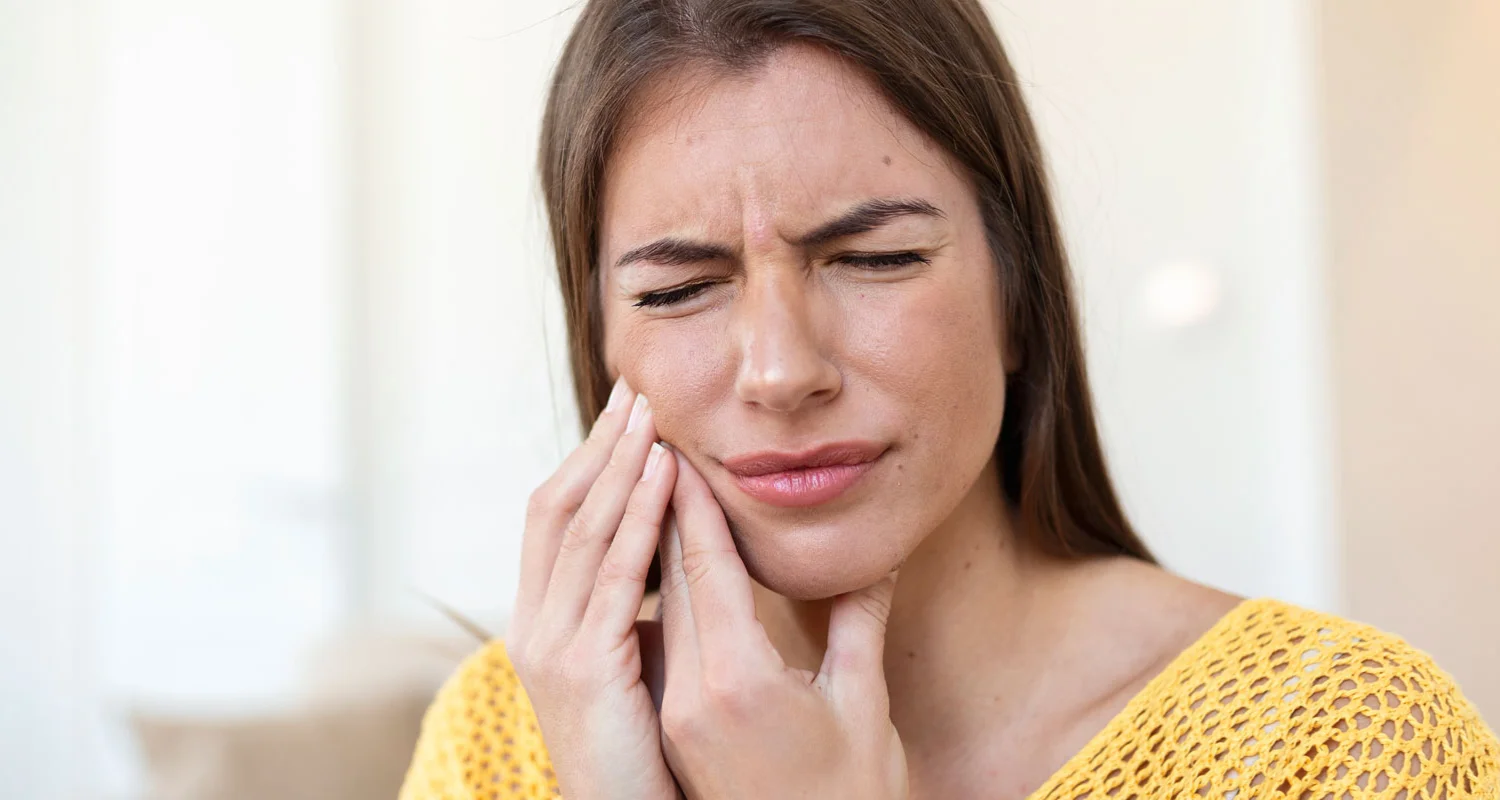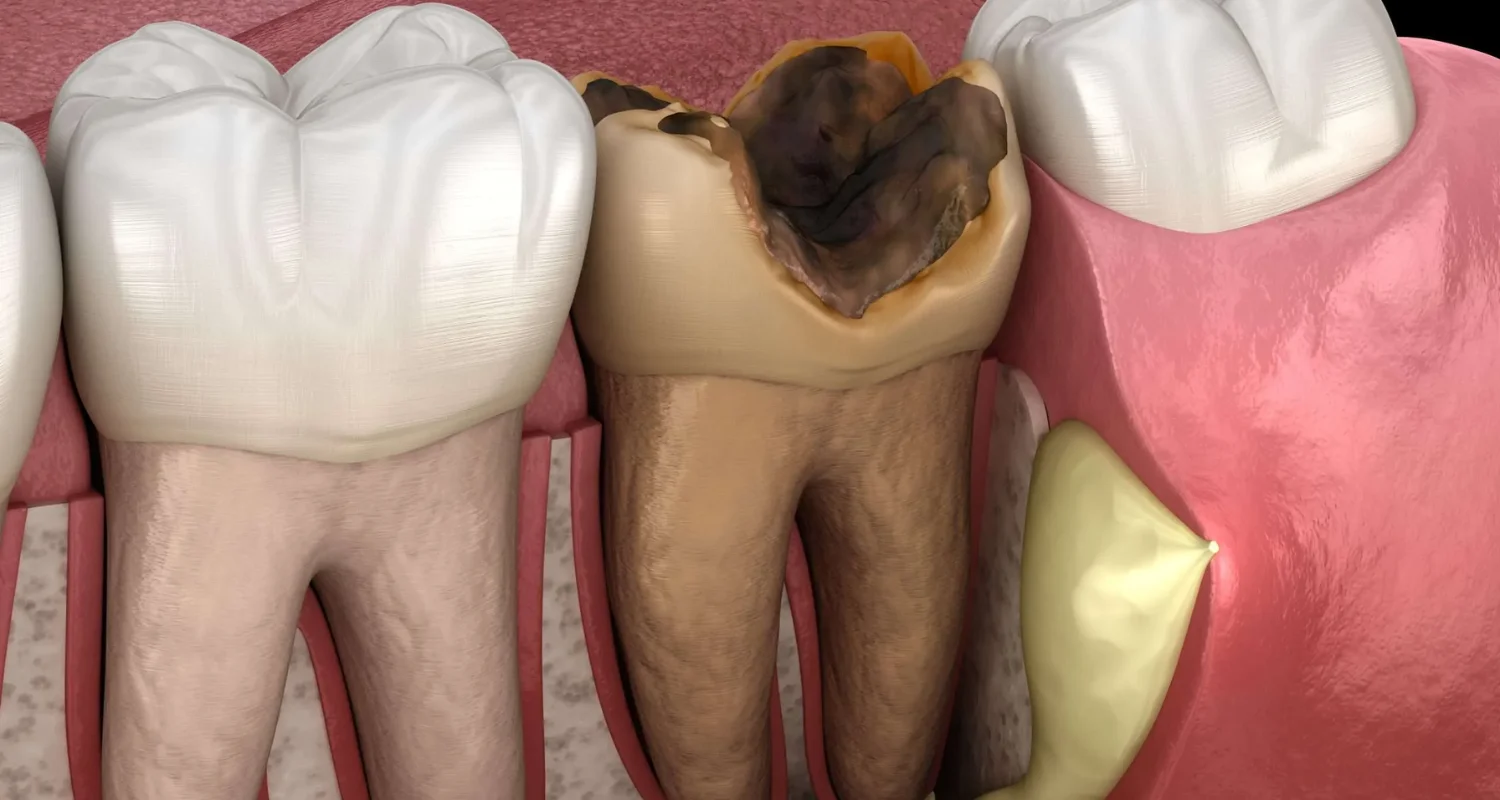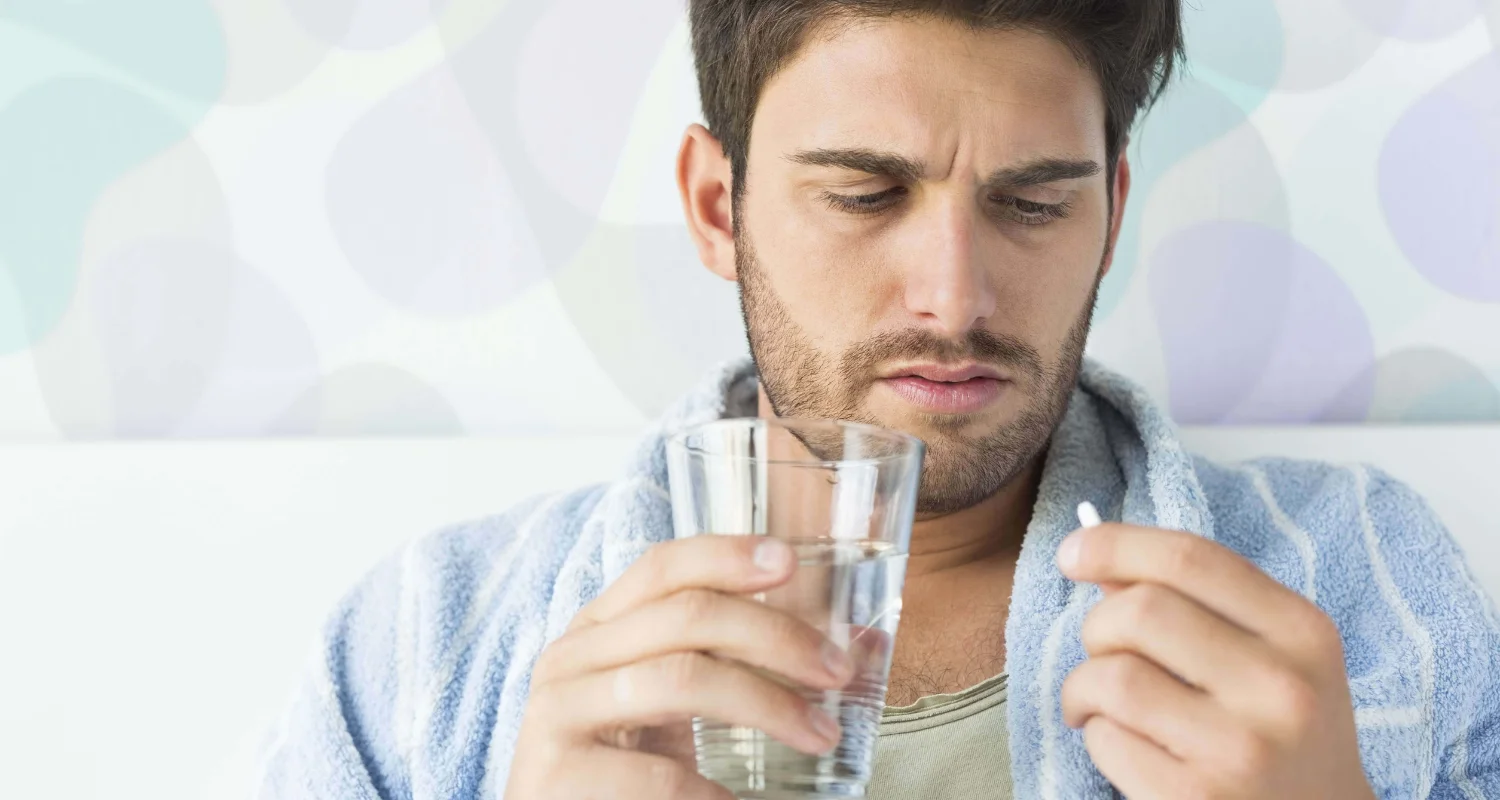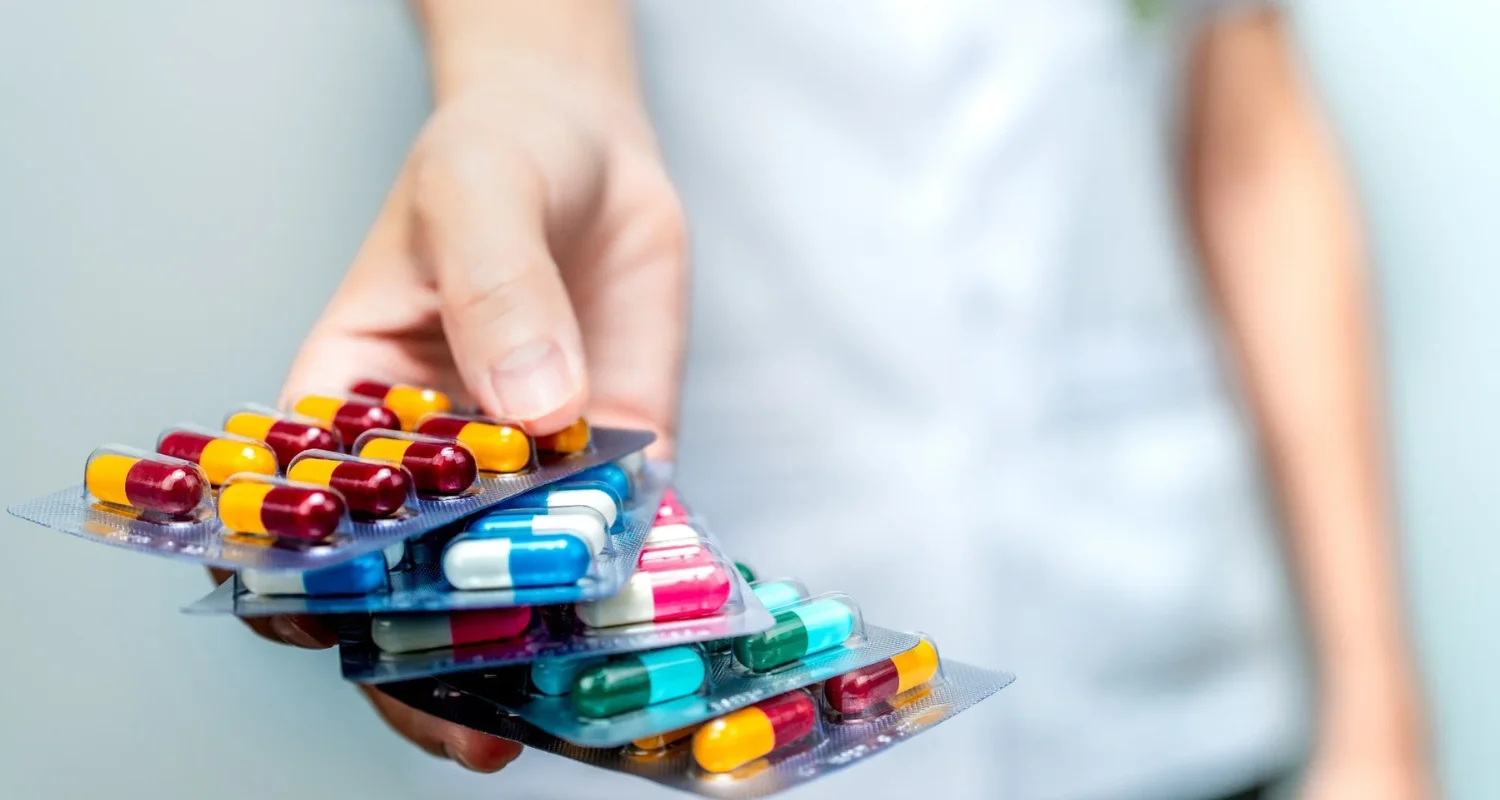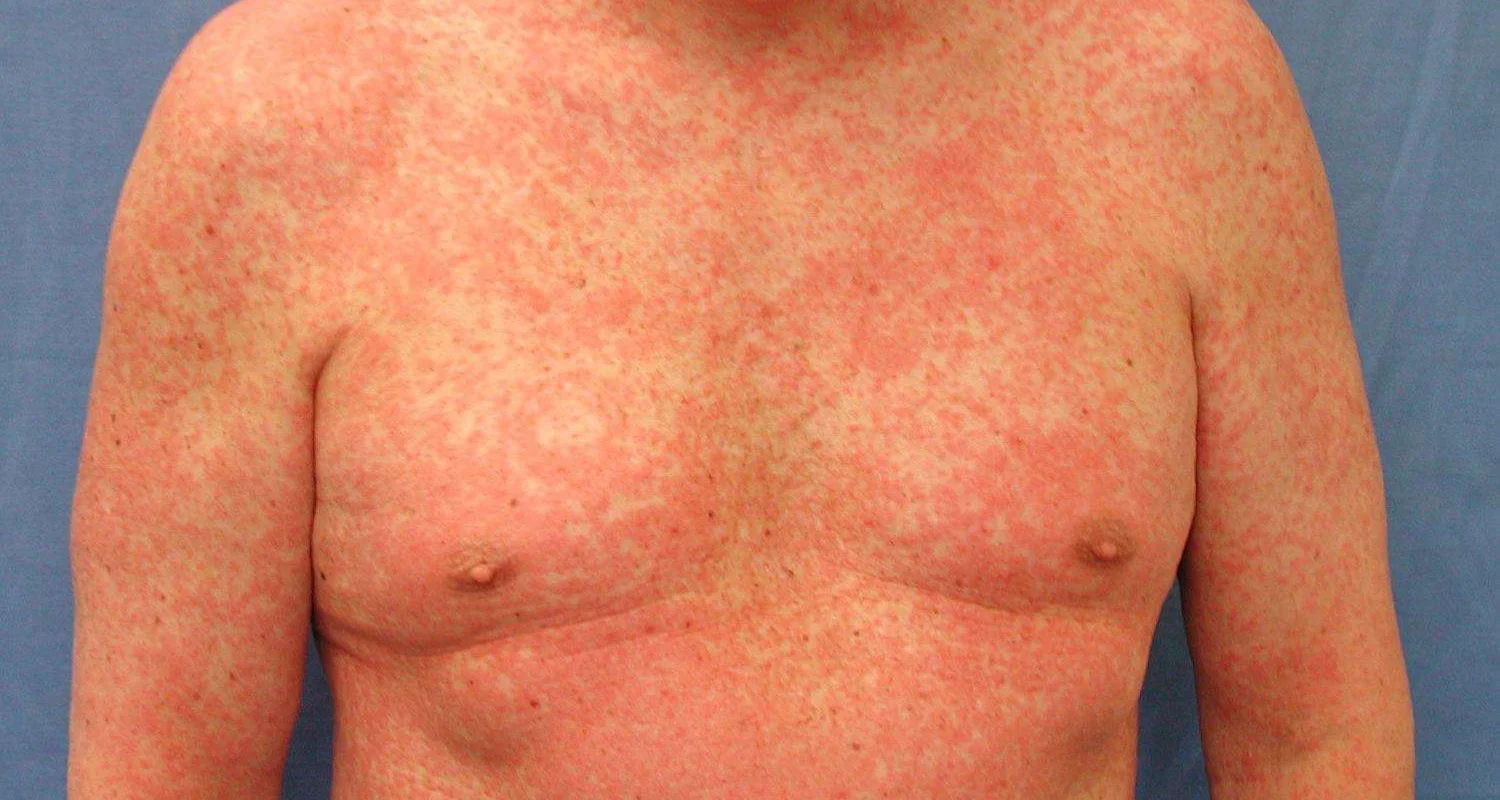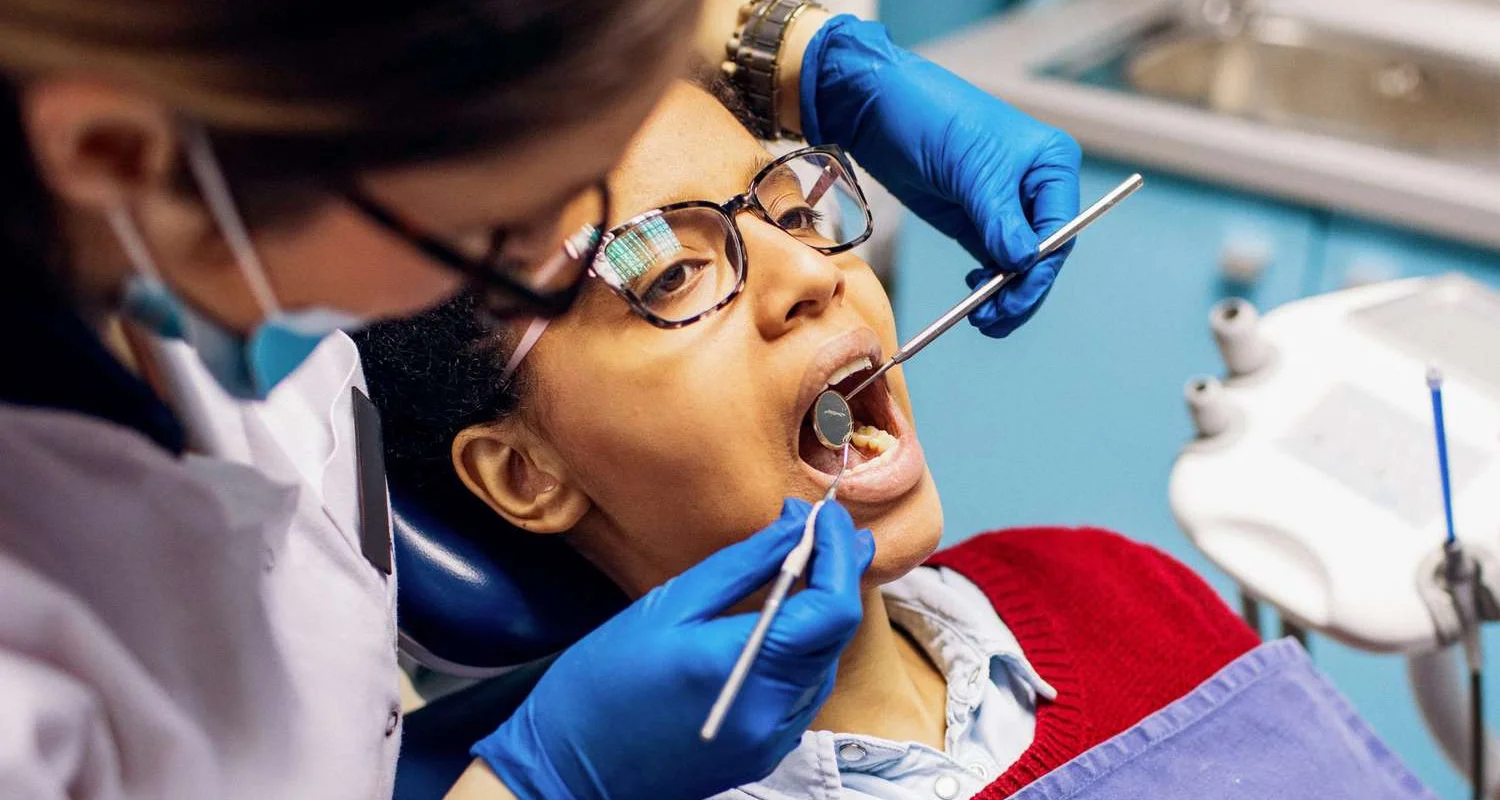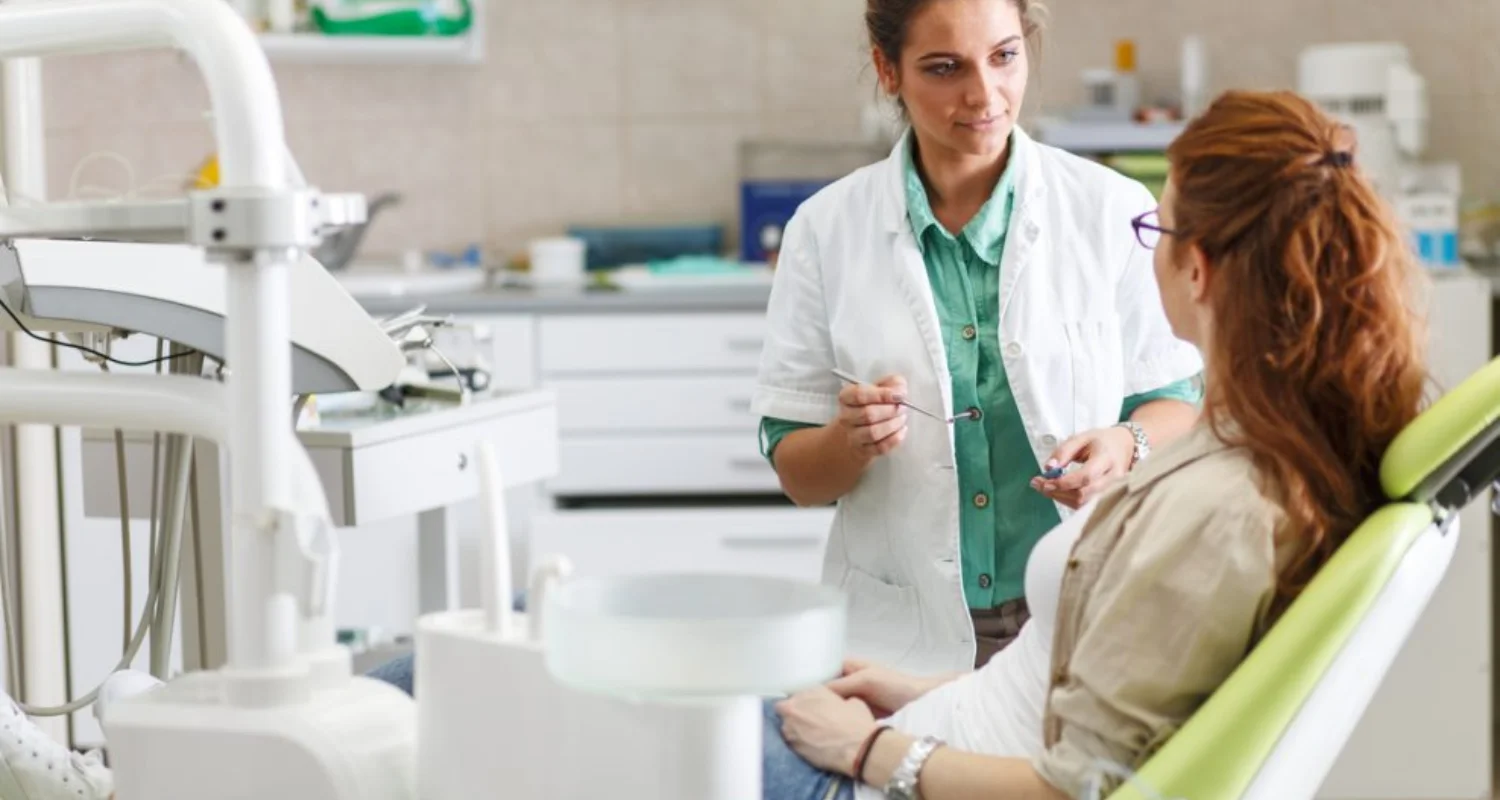Last Updated on: 16th December 2025, 10:58 am
‘How soon will antibiotics stop tooth pain’ is a very common question that people ask when they have toothache.
The environment we live in is filled with microorganisms like bacteria and fungi that interact with our bodies, often in harmony due to the immune system. Constantly exposed to external factors, the mouth contains millions of bacteria in each milliliter of saliva. Under normal conditions, these bacteria are usually harmless. Dental infections occur when balance is disrupted, allowing harmful bacteria to multiply. Antibiotics are used to combat these infections, as they effectively eliminate or reduce harmful bacteria without causing harm to the body.
In this article, we explore dental infections and the most common antibiotics used to treat them. Also, we will answer the question that most people have: ‘How soon will antibiotics stop tooth pain’.
When is it necessary to take antibiotics for tooth pain?
A dental infection occurs when bacteria invade the inside of a tooth, damaging the surrounding tissues. This can lead to inflammation, pain, and the buildup of pus, known as a dental abscess. Infections may also occur following a tooth extraction.
However, not all tooth pain requires ingesting antibiotics. In many cases, discomfort is caused by non-bacterial issues, such as cavities, minor gum irritation, or sensitivity, which can be managed with other treatments like improved oral hygiene, dental fillings, or desensitizing products. Antibiotics are designed to fight bacterial infections specifically and should only be used when harmful bacteria are the root cause of the pain.
Overprescription or misuse of antibiotics can contribute to antibiotic resistance, making bacterial infections more challenging to treat in the future. Recognizing this, the American Dental Association (ADA) emphasizes the need for a shift in prescribing practices. They recommend moving away from a “just in case” approach to a “when absolutely needed” approach for antibiotics in dentistry. This ensures their use is limited to situations where they are essential, promoting both patient safety and public health.
Situations that require antibiotics
● Tooth abscesses: A buildup of pus resulting from bacterial infection. Antibiotics help control the infection and assist the immune system in fighting it.
● Signs of severe or spreading infections: If are symptoms that the infection spreads to surrounding tissues or causes systemic symptoms like fever or significant swelling, antibiotics may be necessary to reduce the severity of the condition.
● Post-surgical procedures: For complex extractions or root canal treatments, antibiotics are used to prevent infection, especially when there is a significant risk of bacterial contamination during the healing process.
Situations where antibiotics are ineffective
Antibiotics are designed to target bacterial infections, making them ineffective for managing tooth pain caused by non-bacterial issues:
● Dental sensitivity associated with temperature changes: This is caused by an increase in the nerve’s ability to perceive and react to cold or heat.
● Teeth grinding (bruxism): This condition is related to mechanical wear and muscle strain from grinding, which causes pain or discomfort.
● Cavities: Cavities result from the demineralization of tooth structure due to acids produced by bacteria. Antibiotics cannot restore the lost minerals or repair the damage. Treatment requires a visit to the dentist to remove the decayed tissue and restore the tooth, using appropriate materials.
● Aphthous ulcers or lesions caused by cold sores: They are caused by viral infections, not bacteria. Antibiotics are only effective against bacterial infections.
That’s why, in those cases, you don’t have to use it and worry about how soon will antibiotics stop tooth pain.
Signs that a tooth infection is getting worse
A worsening tooth infection can lead to serious health risks if not addressed promptly. Recognizing the warning signs early can help prevent complications and ensure timely treatment.
Symptoms to watch for:
● Increasing swelling: Swelling in the face, gums, or jaw that continues to worsen may indicate the infection is advancing and affecting critical areas.
● Fever, chills, or throbbing toothache: These symptoms suggest the infection is spreading beyond the initial site and could involve systemic complications.
● Difficulty swallowing or breathing: This is a life-threatening situation that requires immediate medical attention, as it may signal that the infection is obstructing the throat or airway.
● Foul taste or pus discharge: A bad taste in the mouth or visible pus near the affected tooth points to extensive tissue damage and severe bacterial infection.
Importance of immediate attention:
It is important to seek emergency medical attention if you experience:
● Loss of appetite.
● Weakness.
● Loss of consciousness.
● Fever.
● General discomfort or malaise.
● Difficulty breathing.
Seeking immediate dental care at the first signs of a worsening infection is essential. These symptoms could indicate that the infection has progressed to a stage where the immune system is no longer able to control it. Acting quickly can prevent serious complications, such as an abscess rupturing and releasing bacteria into the bloodstream, which could lead to a life-threatening condition called sepsis.
Recognizing these warning signs and taking immediate action is vital to avoid serious consequences and protect your health.
What could happen if a tooth infection spreads?
Untreated tooth infections can lead to serious consequences that go beyond oral health, affecting both nearby and distant areas of the body.
● Local complications: The infection may spread to the jawbone, nearby tissues, or sinuses, causing pain, swelling, chronic sinusitis and potential damage to surrounding structures, fracture of the jaw, loss of tooth sensitivity, or teeth near the affected area.
● Systemic complications: Bacteria can reach other organs through the blood, causing meningitis, heart infections (endocarditis), gastric, urinary problems, and even sepsis, a generalized infection that is life-threatening and requires urgent medical attention.
● Potentially life-threatening outcomes: If left untreated, a severe tooth infection can lead to critical issues such as airway obstruction from swelling, brain abscesses, or other systemic infections. In extreme cases, these complications can result in permanent disability or even death.
If left untreated, a severe tooth infection can lead to critical issues such as airway obstruction from swelling, brain abscesses, or other systemic infections. In extreme cases, these complications can result in permanent disability or even death.
What kind of antibiotics are used for tooth infections?
To know how soon will antibiotics stop tooth pain, you must understand something: Bacteria come in different shapes and behave differently depending on their environment. Antibiotics are specially created to target specific bacteria and the type of infection they cause. Here are the main antibiotics often prescribed to treat dental infections.
● Amoxicillin: is a penicillin-derived antibiotic that fights a wide variety of bacteria. It works by breaking down the bacteria’s protective outer layer, causing them to die. This antibiotic is widely used for dental infections, but its frequent use has led to some bacteria becoming resistant to it, reducing its effectiveness. Usually prescribed at 500 mg every 8 hours or 875 mg every 12 hours, depending on the severity of the infection.
● Amoxicillin + Clavulanic acid: Clavulanic acid is a compound that increases the effectiveness against bacteria that may be resistant to the action of amoxicillin alone. This combination is formulated in specific cases where resistant bacterial species are detected. Commonly prescribed at 500/125 mg or 875/125 mg every 12 hours.
● Clindamycin: Ca common alternative for patients who are allergic to penicillin. It affects the bacterial capacity to produce proteins, an essential component for its functioning. However, it can have important gastrointestinal effects, so it should be used with caution. The recommended daily dose is 600 to 1200 mg, divided into 2 to 4 doses.
● Metronidazole: is antibacterial and antiparasitic. It affects the DNA of bacteria and is used in conjunction with other antibiotics to increase the range of action in dental infections. It is particularly effective against anaerobic bacteria, which thrive in low-oxygen environments like dental abscesses. Typical dosages are 500 mg every 12 hours or 250 mg every 8 hours.
● Penicillin VK: is highly effective for infections caused by oral bacteria. It works by disrupting bacterial cell walls, making it a reliable choice for treating mild to moderate dental infections. The standard dosage is 500 mg every 6 hours.
Important note: The information provided here is for informational purposes only. Antibiotics should always be taken under the prescription and guidance of a qualified healthcare professional. The dosage and duration of treatment depend upon the specific condition and severity of the infection. Self-medication or misuse of antibiotics can lead to serious health risks, including antibiotic resistance. Always consult a dentist or doctor for appropriate diagnosis and treatment.
How Soon Will Antibiotics Stop Tooth Pain?
Antibiotics typically start reducing swelling from a tooth infection within 24–48 hours, as the medication begins targeting the bacteria causing the issue. Most patients experience noticeable improvement during this time. However, full recovery, including the resolution of swelling and pain, usually takes 5–7 days, provided the infection is not severe and treatment is initiated promptly.
Some factors that affect recovery time are:
● The severity of the infection: More advanced infections may take longer to respond to treatment and may require a longer course of antibiotics.
● Timeliness of treatment: Starting treatment as soon as symptoms appear increases the chances of a quicker recovery. Delaying treatment can allow the infection to worsen, making it more difficult to manage and treat effectively.
● Individual response to the medication: Each person’s body responds differently to antibiotics. Factors such as overall health, immune system strength, and adherence to the prescribed dosage can significantly influence recovery time. Additionally, individuals with systemic conditions like diabetes may experience slower healing, as these conditions can affect the body’s ability to fight infections effectively.
It’s important to complete the full course of antibiotics as prescribed, even if symptoms improve, to ensure the infection is fully eradicated. Additionally, antibiotics alone may not address the root cause of the infection, so follow-up with a dentist for further treatment is essential.
Side effects of antibiotics for tooth infections
Antibiotics are effective in treating tooth infections, but like any medication, they can lead to side effects such as nausea, diarrhea, loss of appetite, allergic reactions, skin rashes, interactions with other medications, and bacterial resistance. One of the more concerning effects is the disruption or reduction of the body’s beneficial bacteria. To minimize these risks, it is essential to:
● Avoid self-medication: Always take antibiotics only when prescribed and follow the dosage and schedule provided by your doctor or dentist.
● Limit unnecessary use: Do not use antibiotics regularly or for conditions that do not require them, such as colds or cold sores.
● Restore beneficial bacteria: After completing an antibiotic treatment, consider taking probiotics to help replenish healthy bacteria in your system.
● Practice good oral hygiene: Maintain regular brushing and flossing, and visit your dentist for routine check-ups to prevent infections.
● Communicate medical history: Inform your healthcare provider about any allergies, adverse reactions, or important medical history before starting antibiotics.
Following these guidelines helps ensure antibiotics are used safely and effectively while reducing potential negative effects on your health. Also, it would help you to know how soon will antibiotics stop tooth pain and swelling.
What should people do if the infection doesn’t disappear?
While antibiotics are effective in managing tooth infections, they are not always enough to resolve the issue entirely. If the infection persists, it’s crucial to take further action to prevent complications.
When to return to the dentist
● If symptoms continue or worsen even after completing the prescribed antibiotics, it’s essential to revisit the dentist for further evaluation.
● The appearance of new or recurring symptoms, such as swelling, pain, or discharge, may indicate that the infection has not been fully treated.
Additional treatments
It’s essential to understand that antibiotics alone cannot fully resolve dental infections. To eliminate the infection completely, the root cause must be addressed:
● Drainage of an abscess: In cases of abscesses, the dentist may need to drain the pus to relieve pressure and remove the infection.
● Root canal therapy: This procedure removes infected tissue from inside the tooth and seals it to prevent reinfection.
● Tooth extraction: If the tooth cannot be saved, removing it may be the best option to eliminate the source of the infection.
Best practices to avoid tooth infections that cause toothaches
A dental infection and its recovery can be a challenging and painful process that requires patience. Hence, instead of wondering how soon will antibiotics stop tooth pain, and avoid such discomfort, you can adopt healthy habits, such as:
● Daily oral hygiene: Brushing twice a day with fluoride toothpaste helps remove plaque and strengthen enamel, keeping your teeth protected. Additionally, flossing daily ensures that food particles and plaque are removed from between teeth, where a toothbrush cannot reach, preventing decay and gum issues.
● Regular dental checkups: Regularly attending the dentist is crucial for maintaining oral health. Professional cleanings prevent decay by removing tartar, while routine exams help detect and treat minor issues, like cavities before they progress into serious infections.
● Healthy lifestyle choices: Limiting sugar intake reduces the risk of tooth decay while staying hydrated boosts saliva production, helping to clean the mouth and maintain a healthy pH balance. Regular exercise and avoiding smoking and alcohol further support oral and overall health.
● Promptly treat dental problems: Take care of problems like cavities, gum disease, or dental injuries promptly to stop them from turning into infections. Acting early helps preserve teeth and avoid pain or other complications.
Conclusion
Are you still wondering about how soon will antibiotics stop tooth pain?
Antibiotics play a crucial role in treating dental infections by promoting effective recovery, stopping tooth pain, and supporting the immune system in fighting harmful microorganisms. However, their use must always be supervised by a doctor or dentist, as antibiotics, like any medication, can have side effects and require careful evaluation of the infection and the patient’s overall condition.
Responsible use of antibiotics minimizes unwanted side effects, enhances their effectiveness, and helps prevent future issues such as antibiotic resistance. Remember, timely visits to the dentist are key to preventing dental infections and maintaining overall oral health.
Frequently Asked Questions
How soon will antibiotics stop tooth pain?
Most people begin to feel relief from tooth pain within 24 to 48 hours after starting antibiotics. The medication reduces the infection, which helps alleviate pain.
Are antibiotics always effective for tooth pain?
Antibiotics work for infections caused by bacteria, but they are ineffective for pain caused by non-bacterial issues like sensitivity, grinding, or nerve inflammation. Proper diagnosis by a dentist is essential.
Why does it take time for antibiotics to relieve pain?
Antibiotics need time to reduce the bacterial load and inflammation, which are the main causes of the pain. The exact timeline varies depending on the severity of the infection and individual health factors.
What should I do if the pain doesn’t go away after taking antibiotics?
If pain persists after completing your antibiotics, consult your dentist. The infection may not be fully treated, or additional dental procedures may be required.
Can I take amoxicillin to help a toothache?
Amoxicillin can help treat toothaches caused by bacterial infections like abscesses. However, it must be prescribed by a dentist or doctor and should be taken as directed. Antibiotics alone won’t fix the root cause, so follow-up dental treatment is necessary. Avoid self-medicating and consult a professional.
Share
References
1. Cleveland Clinic professional. (2024a, may 1). Antibiotics for Tooth Infections. Cleveland Clinic. https://my.clevelandclinic.org/health/treatments/antibiotics-for-tooth-infections
2. Cope, A. L., Francis, N., Wood, F., Thompson, W., & Chestnutt, I. G. (2024, may 7). Systemic antibiotics for symptomatic apical periodontitis and acute apical abscess in adults. Cochrane Library. https://www.cochranelibrary.com/cdsr/doi/10.1002/14651858.CD010136.pub4/full
3. Johnson, J. (2024, february 28). What to know about antibiotics and tooth infections. https://www.medicalnewstoday.com/articles/325470
4. Lockhart, P. B., Tampi, M. P., E., Aminoshariae, A., Durkin, M. J., Fouad, A. F., Gopal, P., Hatten, B. W., Kennedy, E., Lang, M. S., Patton, L. L., Paumier, T., Suda, K. J., Pilcher, L., Urquhart, O., O’Brien, K. K., & Carrasco, L. A. (2019, november). Evidence-based clinical practice guideline on antibiotic use for the urgent management of pulpal- and periapical-related dental pain and intraoral swelling. The Journal Of The American Dental Association, 150(11), 906-921.e12. https://doi.org/10.1016/j.adaj.2019.08.020
5. WebMD collaborators. (2023, april 6). Tooth infection treatment. WebMD. https://www.webmd.com/oral-health/treatments-tooth-infections
-
DDS Juliana Garzon [Author]
Dr. Juliana Garzón Ariza Endodontics Specialist | Passionate Advocate for Oral Health Transformation Graduating from the esteemed Universidad Nacional de Colombia in 2021, I am a dentist and a final-year resident specializing in Endodontics. My professional mission is to transform oral health through prevention, highly specialized treatments, and patient education. With a strong focus on dental research, I am driven to innovate solutions in critical areas such as dental pain, infections, dent...
View all posts


